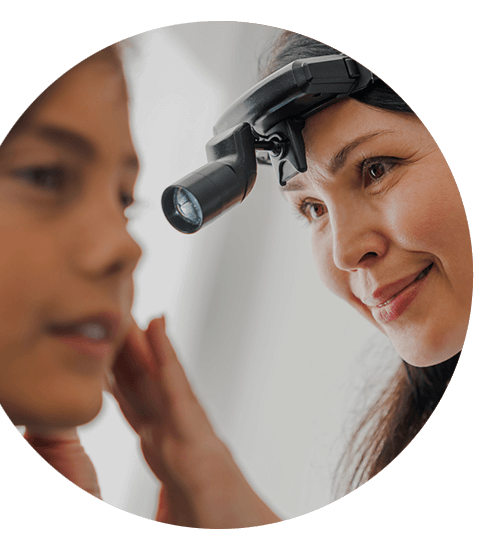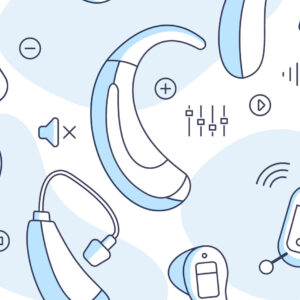APD Screening Questionnaire
Auditory Processing Disorder (APD) is a complex problem that affects the way the brain processes auditory information. Individuals with APD usually have normal structure and function of the outer, middle and inner ear. However, they cannot process the information they hear in the same way as others, which leads to difficulties in recognizing and interpreting sounds, especially the sounds composing speech. It is thought that these difficulties arise from dysfunction in the central nervous system (i.e., brain). APD has been referred to as “dyslexia for the ears” because it causes a mismatch between peripheral hearing loss (i.e., normal hearing) and the ability to interpret or discriminate sounds.
Deficits Associated with APD
Does your child have any of the following?
- Do they seem confused or have difficulty listening in noise?
- Are they easily distracted or bothered by loud sounds?
- Does your child frequently request repetition, “mis-hear” words or frequently say “what?”
- Does their teacher feel like your child can’t hear but they have always passed the school hearing screenings?
- Do they have difficulty determining the direction of sounds?
- Have difficulty understanding spoken language in competing messages, or when rapidly presented?
- Are they taking longer to respond in oral communication situations, or seem to need more time to process information?
- Do they have poor listening skills? Do they fatigue easily with long or complex activity or “tune out” altogether?
- Are they misunderstanding messages, such as, responding inconsistently or inappropriately?
- Do they have problems carrying out multi-step directions given orally; need to hear only one direction at a time?
- Do they have difficulty with reading, comprehension, spelling, vocabulary or other speech/language difficulties?
- Do they have difficulty perceiving differences between speech sounds (confusing similar words, e.g., “hat” & “bat”)?
- Do they have difficulty perceiving what is actually said, creating the sense that someone is speaking unfamiliar or nonsense words?
- Have difficulty learning songs, nursery rhymes; poor musical & singing skills?
- Are they inattentive or have difficulty paying attention?
- Do they have problems relating what has been said with its meaning?
- Do they have difficulty with abstract concepts, or take everything very literal?
- Do they depend frequently on lip reading, body language, and eye contact to compensate for their auditory difficulties?
- Do they have trouble remembering or keeping in sequence what is heard?
- Do they have trouble paying attention to and remembering information presented orally, and can cope better with visually acquired information?
- Are they bright & intelligent but have low academic performance? Difficulty attending to classwork?
- Do they have an inappropriately too loud or too soft voice?
- Do they have behavior problems?
- Is your child performing poorly in reading or struggling to complete homework assignments in a reasonable time period?
If you answered Yes to any of the above your child may be struggling with APD. Simple tests can be performed by an Audiologist specializing in the diagnosis of APD in order to determine if an auditory processing disorder exists. Once a deficit specific diagnosis is determined, appropriate treatment can be recommended to help your child improve and manage their APD.





